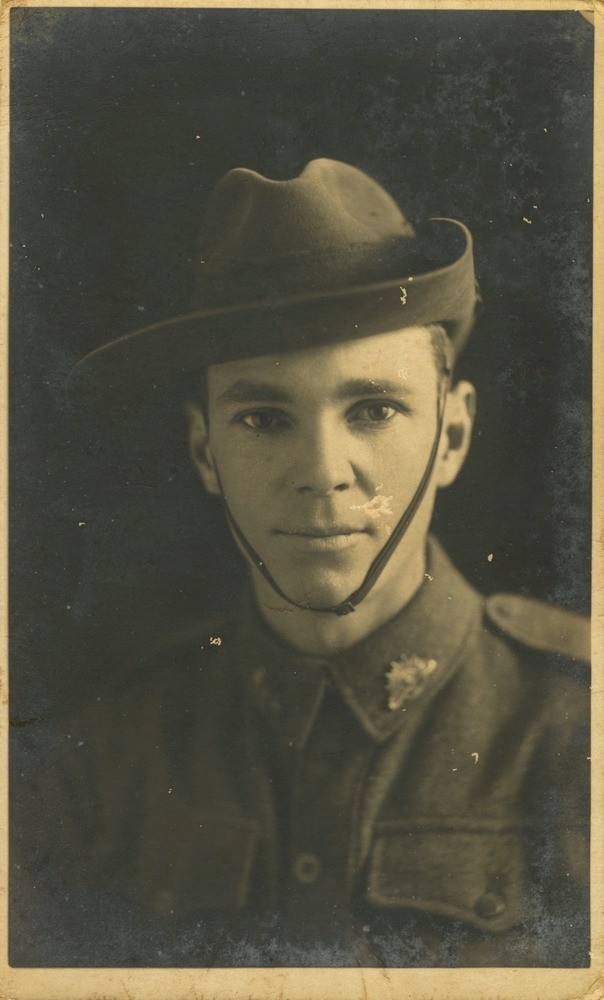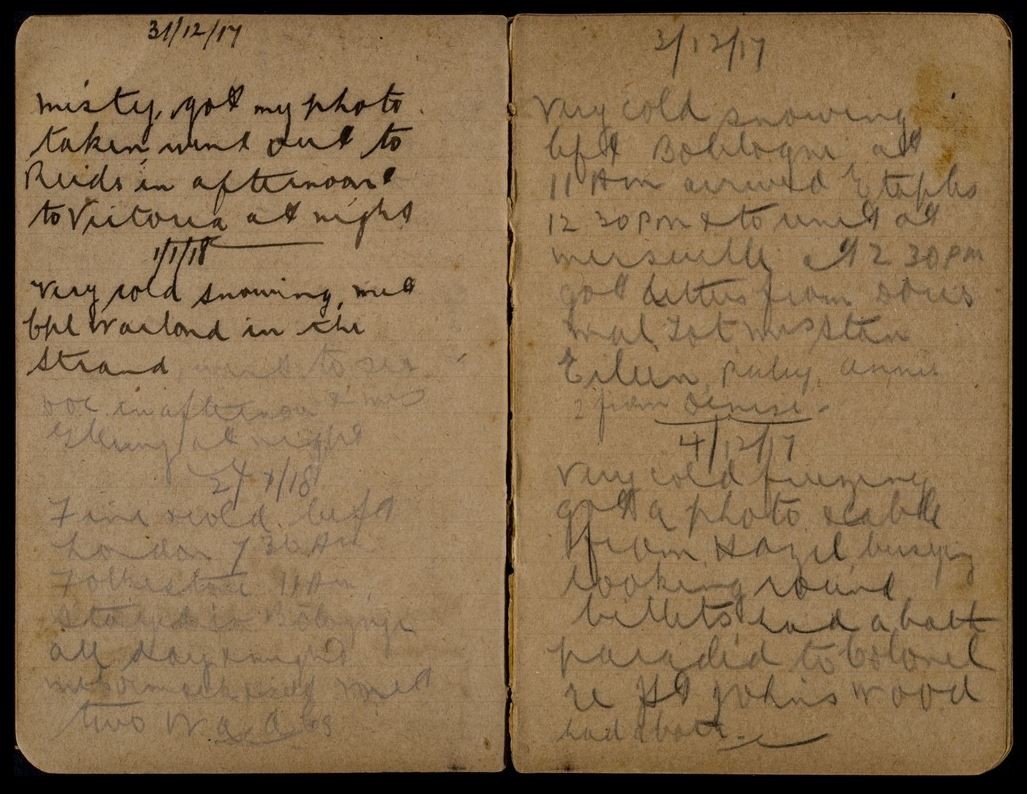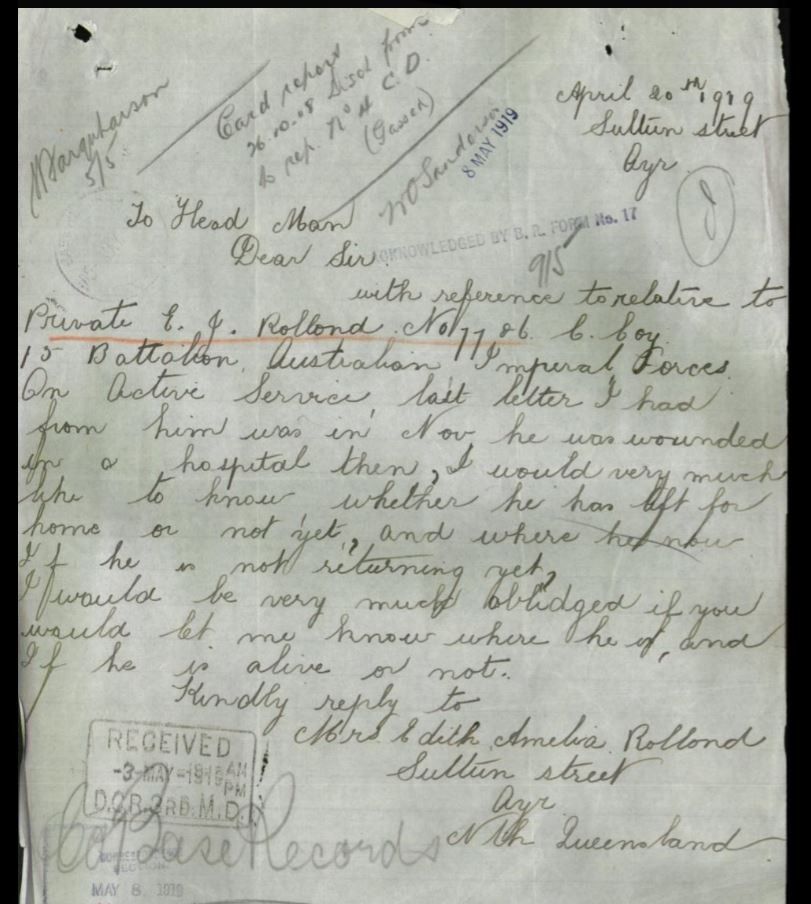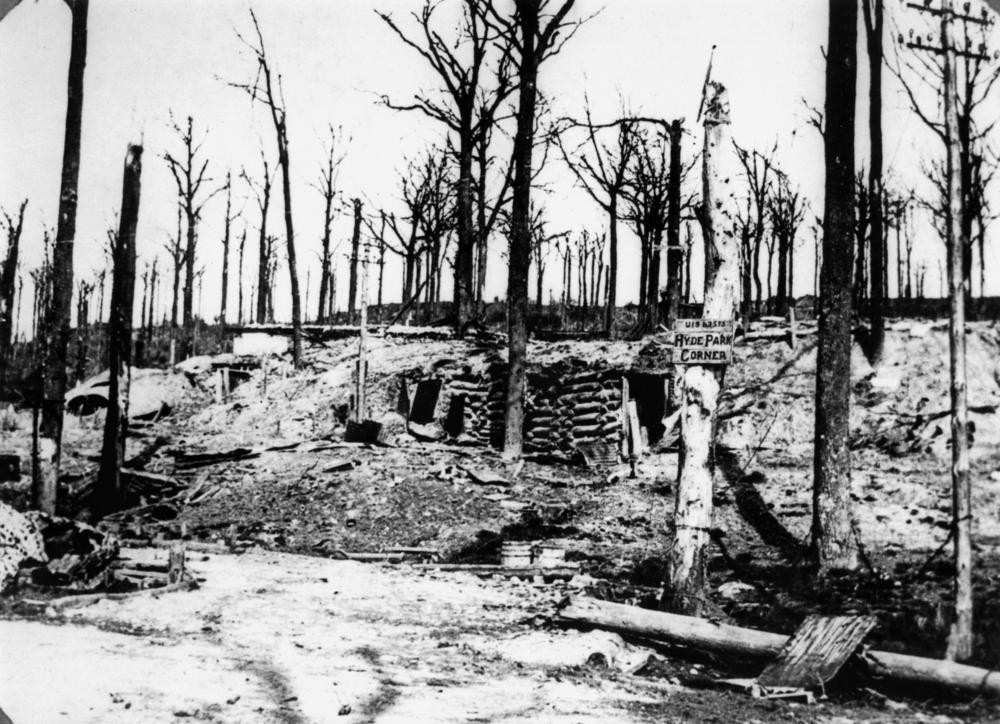Guest blogger: Victoria Carless - Q ANZAC 100: Memories for a New Generation Fellow
During the process of researching and writing my novel on desertion during the Great War, I’ve come to learn that the decision to leave one’s post and one’s mates often had severe implications. Not only in that moment and during the war, but one reverberating down through the years, casting a shadow over the lives of those accused and that of their families.
Nevertheless, the decision to opt out was more common than you may think. According to Dianne De Bellis’ writing on the subject, approximately ten per cent of those Australians who served were court marshalled and charged with being Absent Without Leave or Desertion.
Given this, what was the enlisted troops’ view of desertion? We might look to the writings held in the SLQ collections of those who served to offer a new perspective.

Studio photograph of Archie Lindesay Black. John Oxley Library, State Library of Queensland. Image 29518-0003-0001
Lieutenant Archie Lindesay Black from Mackay records several incidents of desertion in the diaries he kept from 1916 to 1918. On December 4, 1917, he writes:
'Showery, very cold got a letter from Crombie, went to hqrs in morning on McAuliffe’s case.’
An annotation on the transcript of this diary entry piqued my interest. Apparently the man mentioned – Private Dennis McAuliffe and a friend of Archie’s - was being court marshalled for desertion. Private McAuliffe’s records read:
‘Court of inquiry held on 21/11/17 finding McAuliffe illegally absented himself on 19/9/17 and is still absent.’

29518 Archie Lindesay Black Collection 1916-1919. John Oxley Library, State Library of Queensland
The very next entry on his Casualty Report however, indicates he was hospitalised during this time. What a bureaucratic bungle for the unfortunate Private. Can you imagine having that on your record for all to see? Particularly if you were found innocent?
The charge of desertion also had significant impacts on those left behind at home.
I recently undertook a research trip to Far North Queensland where, after speaking to Glenis Cislowski from the Burdekin Historical Society, I learnt of the story of Private Edward John Rollond, also known as Ernest James Rollond and Ernest James Allan, who enlisted from 1915 onwards multiple times under multiple identities.
Almost immediately Private Rollond’s statement of service records him as being Absent Without Leave and indicates his pay was docked. What follows is a 102 page file with a litany of offences and paperwork, including urgent telegrams about his whereabouts. These were seemingly fuelled by a barrage of correspondence to the department from his desperate wife; one of them at least.

Letter from the service record of Edward John Rollond. National Archives of Australia collection. B2455
A sad letter from Mrs Edith Rollond addressed ‘to the head man’ enquires as to whether her husband is alive or not. The reply is a rather impersonal and curt response stating that he had enlisted as a single man. We might say this act of desertion had consequences beyond the war; Private Rollond had also deserted those that loved him. And from the records, it appears he perhaps didn’t ever arrive back in Australia.

Hyde Park Corner at Messines, Belgium. John Oxley Library, State Library of Queensland. Neg 119608
So where did the successful illegal absentee disappear to? De Bellis, in her writing on the topic, suggests they probably haunted the periphery of the forests in France and Belgium, running gambling rings and selling black market wares, often back to the troops. These were the soldiers who could never really return to Australia, as themselves at least; those forever displaced.
This is perhaps one of the sadder impacts of desertion that I can imagine. And wonderful material for a work of fiction.
Further reading:
- Archie Lindesay Black Collection (SLQ collection)
- Dianne De Bellis thesis - Stories of Australian deserters in World War 1
- NAA: Edward John Rollond
Applications for 2017-18 Q ANZAC 100 Fellowships
If you are interested in applying for a 2017-18 Q ANZAC 100 Fellowship, be quick as applications close on Wednesday 29 March. Remember this year your topic can be about significant military campaigns or anniversaries from the last 100 years of service, not just the First World War. For more information http://qanzac100.slq.qld.gov.au/research-hub/fellowships
Comments
Your email address will not be published.
We welcome relevant, respectful comments.